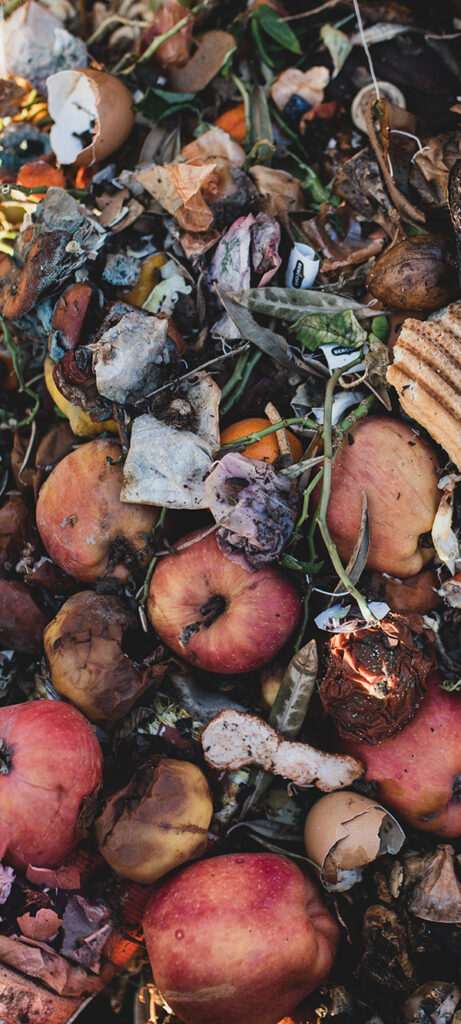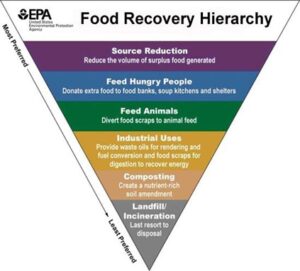solid waste 101

Food Waste
Food loss during production, storage, processing, or distribution, encompasses items produced for consumption that are not eaten. Insect, rodent, and bird damage, mold, and temperature extremes during storage or transportation can all result in food loss. Food waste typically refers to food that is edible but discarded by retailers or consumers. Regardless of where in the journey from farm to table it occurs, discarded food is a major problem in the United States, where an estimated 30-40% of the food supply is wasted discarded annually.
Approximately 95% of discarded food is buried in landfills, where it comprises the largest category of municipal solid waste. In addition, food decomposition in landfills generates methane, a potent greenhouse gas. The first step in reducing food waste is restraint at the grocery store. Over-purchasing not only wastes food but wastes money as well. Several sustainable alternatives for managing food waste exist. By donating surplus food that is still edible to food banks and food pantries, restaurants and grocery stores can simultaneously improve food security, conserve landfill space, and reduce greenhouse gas emissions. Some food that isn’t fit for human consumption, including table scraps and restaurant leftovers, still has value as animal feed. Innovative businesses are also converting food waste to new products, such as biofuels. If none of these strategies are feasible, composting creates natural fertilizers and is a far better alternative than landfills.
The U.S. Environmental Protection Agency and the U.S. Department of Agriculture have established a national goal of 50% reduction in food waste from a 2010 baseline by 2030. Everyone, from farms to food processors, to grocery stores and restaurants, to consumers, has a role to play in working toward this goal.
Resources
Food Waste FAQs (USDA)
Food Loss and Waste (USFDA)
National Overview: Facts and Figures on Materials, Wastes and Recycling (EPA)
How We Fight Food Waste in the US (Feeding America)
Food Waste: The Big Picture (Harvard)
Stay in Touch
Join our email list to stay on top of the latest news on sustainable solid waste management, including action alerts for ways you can make your voice heard!

